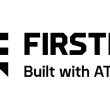EF Johnson looks for success where it can find it
When Harris purchased Tyco Electronics Wireless Systems (formerly M/A-COM) earlier this year, it sent a shock wave through the public-safety communications sector, as many believe that the acquisition created for Motorola — long the sector’s dominant player — the long-sought rival that is capable of competing with the behemoth on equal footing. At EF Johnson Technologies, however, the transaction was met with a figurative shrug of the shoulders.
That’s because EFJ is quite happy with being a niche player, according to Ed Kelly, vice president of marketing and business development. “To compete with the two titans, you have to do things differently, so we’re focusing solely on first responders,” Kelly said. “We decided we can’t be everything to everybody.”
And though it does manufacture some trunking-capable products, EFJ’s focus these days is on the wide-area conventional market, Kelly said. “The big boys are focused on trunking,” he said. “We want to be number one in wide-area conventional.”
Kelly said EFJ plans to introduce at next month’s Association of Public Safety Communications Officials conference in Las Vegas a communications system that lets users seamlessly roam between conventional and trunking systems. The idea is to let agencies that operate conventional systems communicate with neighboring agencies that are operating trunking systems when a major incident occurs — without a patch and without having to execute an expensive technology migration.
That’s a big key, according to Kelly. “This is very innovative,” he said. “We think we can use this to erode some of the trunking market share. Motorola and Harris sell trunking to agencies that may not need it.”
Each repeater in the system contains an IP router that sends calls to various points in the system based on pre-determined talkgroups, rather than through a centralized switch, which eliminates a single point of failure.
Kelly said he believes the time is right for an IP-centric system that is designed to carry mission-critical voice traffic. “All of the issues regarding IP have gone away,” he said.
But convincing the first-responder sector of this has been a challenge, he said. “It’s not easy for a small company like ours to convince public safety that IP will work in a mission-critical environment,” Kelly said. “But it’s beginning to gain traction.”
That’s in large measure because of the partnership EFJ has forged with several titans in the IP space, most notably Cisco.
This has helped us push this notion forward faster,” Kelly said.
















